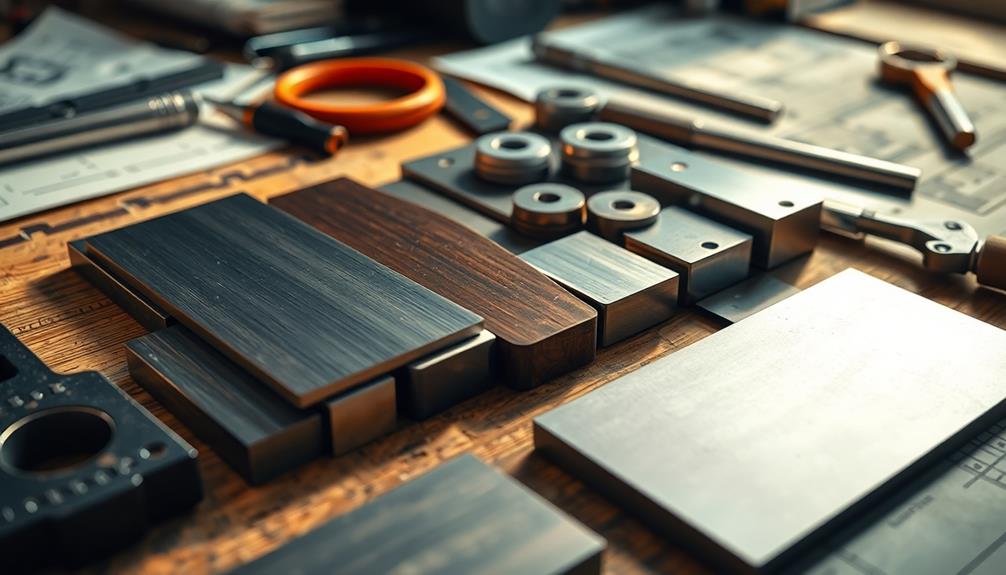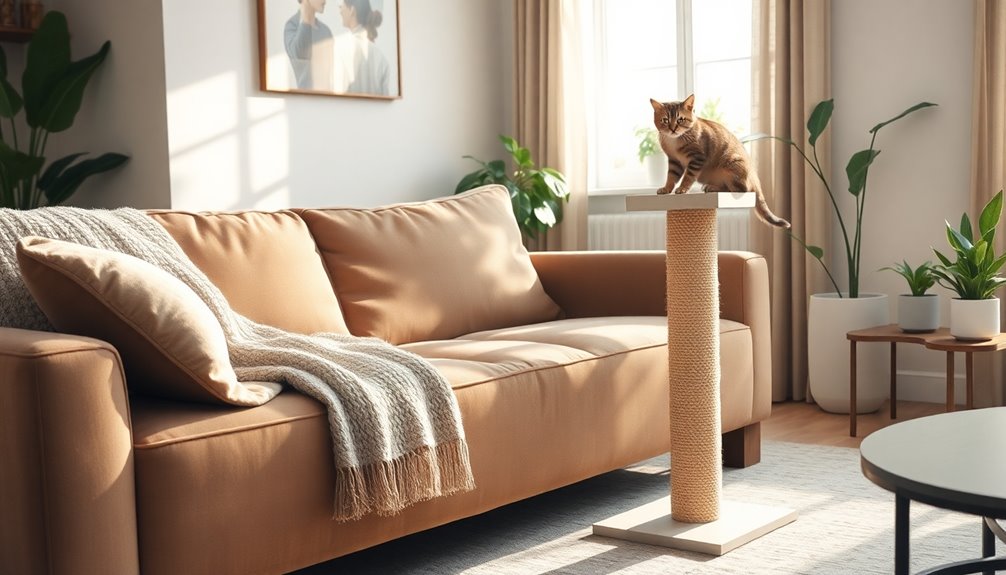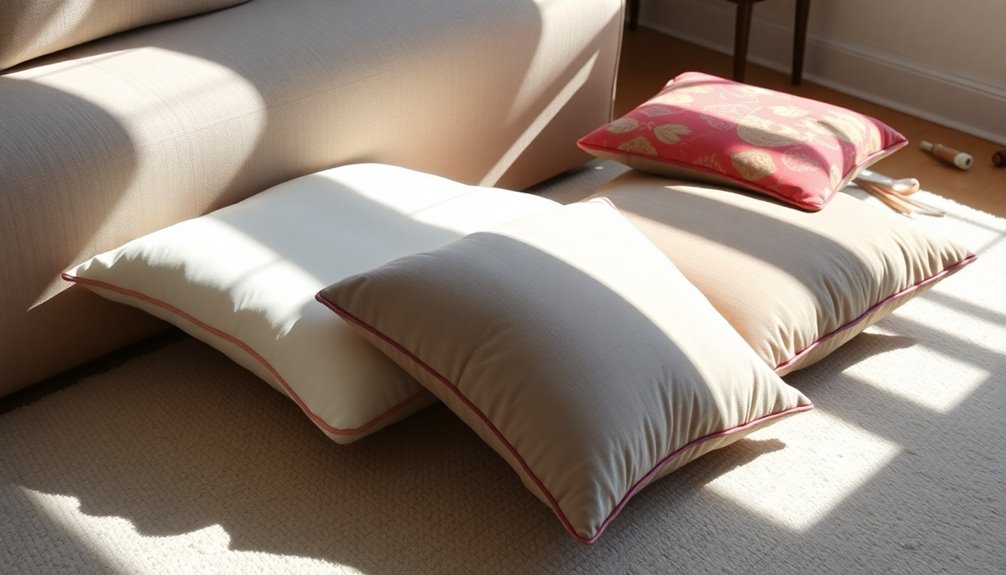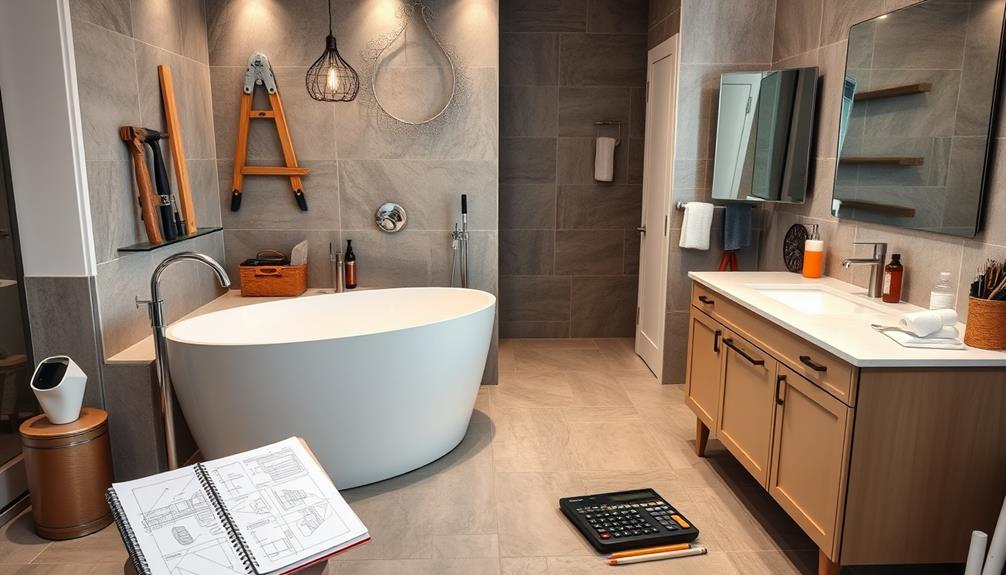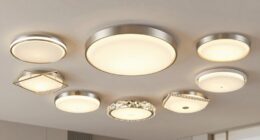When you are looking for the best lightweight metal for your projects, consider titanium, aluminum, and magnesium. Titanium offers exceptional strength and durability, making it ideal for high-stress applications, but it can be more expensive. Aluminum alloys are versatile, striking a balance between weight and cost while providing good strength and excellent corrosion resistance. If your main focus is weight savings, magnesium is the lightest option and perfect for intricate designs. Each metal has its own benefits, so evaluating their properties will help you determine which is the best fit for your needs. You will find more insights to help guide your decision as you continue to explore.
Key Takeaways
- Evaluate the strength-to-weight ratio: Titanium offers the highest, followed by magnesium and aluminum, to meet specific project demands.
- Consider application needs: Titanium is ideal for aerospace and medical use, while aluminum suits automotive and general applications.
- Assess cost versus benefits: Titanium is strong but expensive, aluminum balances cost and strength, while magnesium prioritizes weight savings.
- Review corrosion resistance: Titanium and aluminum excel in durability, making them suitable for harsh environments, whereas magnesium requires protective coatings.
- Factor in machinability and forming: Aluminum and magnesium are easier to shape and machine, enabling intricate designs for various projects.
Lightweight Metals Overview
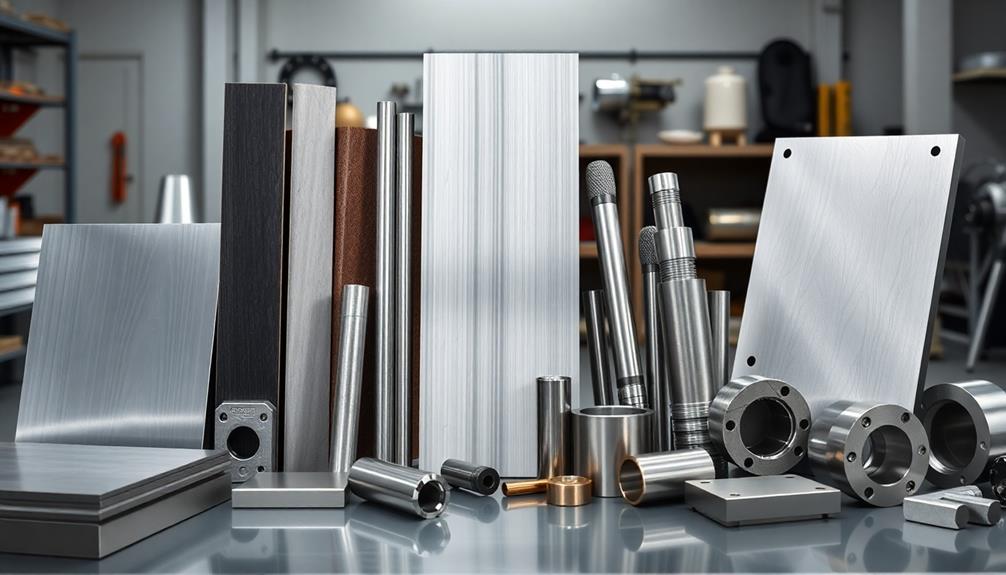
When it comes to selecting materials for your projects, lightweight metals like titanium, aluminum, and magnesium stand out due to their remarkable properties.
Titanium is known for its exceptional strength, being 42% lighter than steel, making it ideal for critical applications where durability is essential. Titanium’s remarkable corrosion resistance further enhances its appeal, particularly in industries such as aerospace, medical, and marine engineering, where longevity and reliability are paramount. Its impressive qualities draw comparisons to other high-performance products designed for demanding environments, much like a detailed msi katana a15 review highlights the laptop’s robust build and efficient performance for gaming and productivity. Such characteristics emphasize titanium’s versatility and consistent ability to meet rigorous standards in cutting-edge applications.
Aluminum alloys offer a superb balance of strength and weight, with a density one-third that of steel, perfect for aerospace and automotive uses.
Magnesium alloys are even lighter, weighing 77% less than steel while maintaining a high strength-to-weight ratio.
Their unique characteristics make these metals versatile choices for various applications, ensuring you can find the right material that meets your project's specific needs without compromising on performance or efficiency.
Key Properties of Titanium
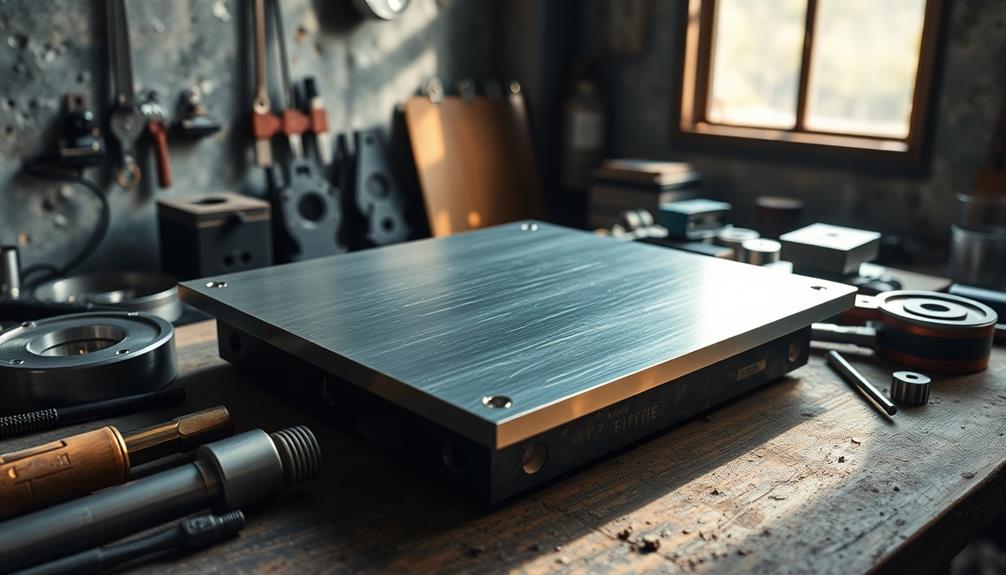
The strength and durability of titanium make it an exceptional choice for a variety of applications.
You'll appreciate its remarkable corrosion resistance, which guarantees longevity in harsh environments, making it ideal for aerospace and medical uses.
Its high strength-to-weight ratio means you can achieve immense strength without the added bulk, allowing for more efficient designs.
Plus, titanium's versatility allows it to be used in everything from marine components to automotive parts.
Its biocompatibility also makes it a top choice for medical implants, assuring safety and effectiveness.
When you need a lightweight metal that doesn't compromise on performance, titanium stands out with its unique combination of properties, assuring your projects are successful and sustainable.
Benefits of Aluminum Alloys
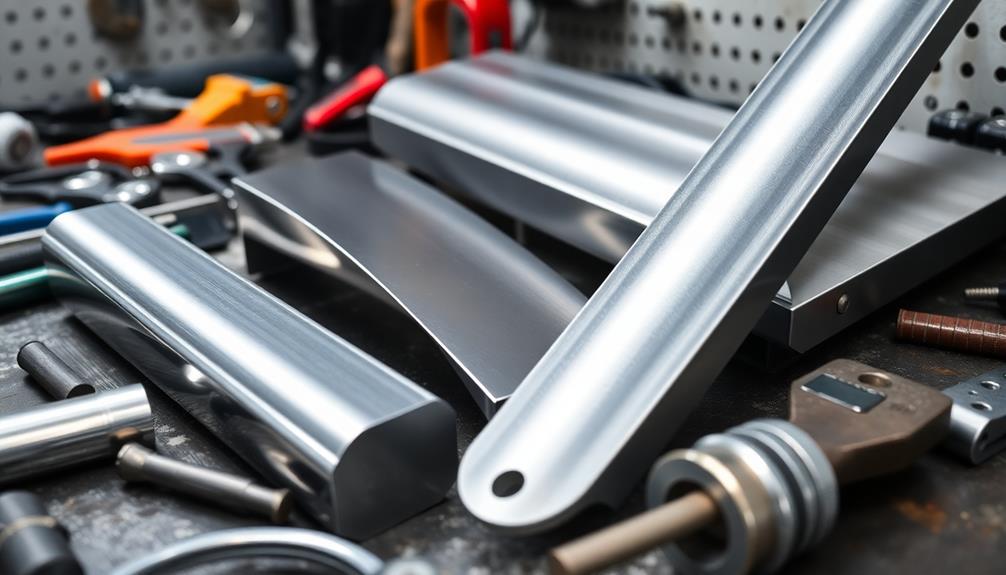
Why choose aluminum alloys for your projects? You'll find they offer a remarkable combination of lightweight strength and versatility.
With a density that's one-third that of steel, aluminum alloys make handling and installation easier without compromising structural integrity. Their high ductility and malleability allow for intricate designs and easy shaping, making them ideal for various applications.
Plus, aluminum alloys boast excellent corrosion resistance, ensuring durability and longevity, even in challenging environments. This means less maintenance and replacement over time, saving you money.
You'll also appreciate their recyclability, contributing to sustainability efforts.
Advantages of Magnesium
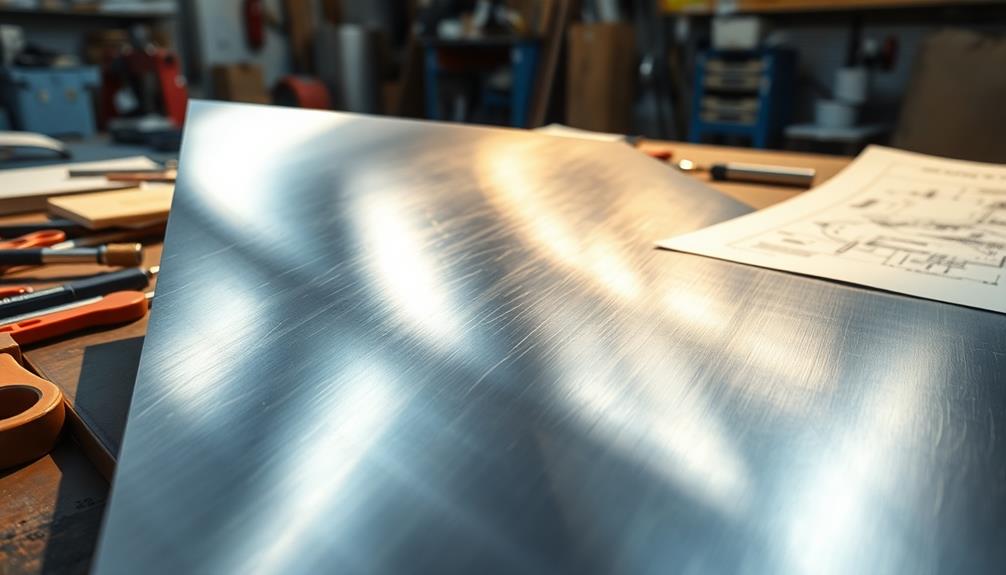
Magnesium offers numerous advantages that make it a standout choice for weight-sensitive projects. Its easy machinability allows you to create intricate designs and complex components without hassle. This feature is particularly beneficial when you're working on detailed applications.
Additionally, magnesium's excellent corrosion resistance means your projects will have enhanced durability in various environments, reducing maintenance costs over time. The material's lightweight nature—77% lighter than steel—enables you to achieve significant weight savings, which can lead to improved performance and efficiency in your designs.
Moreover, with advanced PEO coating technology, you can enhance magnesium's mechanical and thermal properties, making it even more suitable for demanding applications. Overall, magnesium's unique advantages make it an excellent choice for innovative projects.
Strength-to-Weight Ratio Analysis
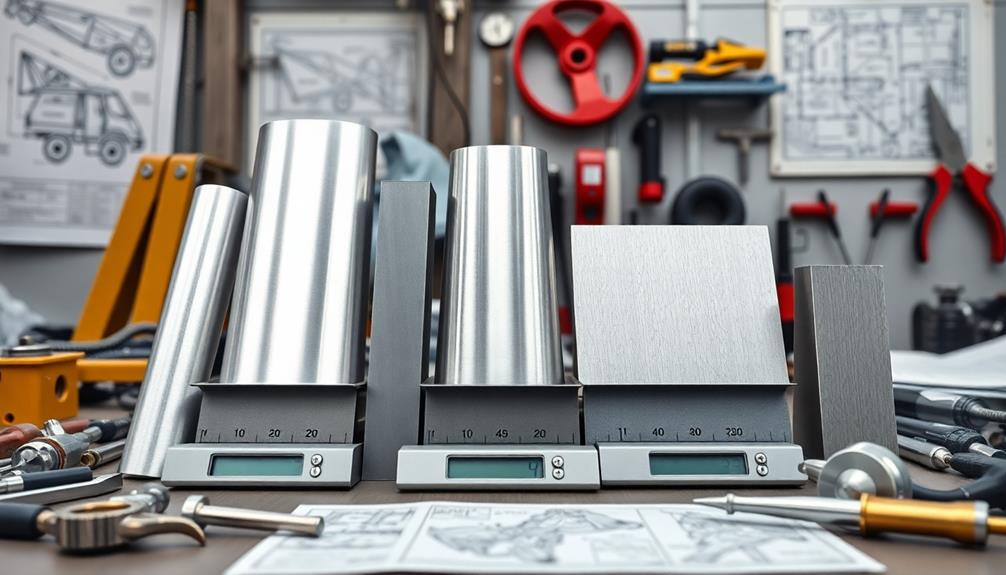
Understanding the strength-to-weight ratio of lightweight metals is essential for making informed material choices in your projects.
Titanium leads the pack with the highest strength-to-weight ratio, making it suitable for applications where both strength and weight are critical.
Aluminum, while 65% lighter than steel, maintains good strength levels, making it suitable for a variety of industries like aerospace and automotive.
Magnesium, even lighter at 77% less than steel, also offers an impressive strength-to-weight ratio, perfect for weight-sensitive designs.
By evaluating these ratios, you can better align your material selection with your project's specific requirements, ensuring peak performance without compromising on strength.
This analysis lays the groundwork for choosing the right metal in your next project.
Choosing the Right Metal
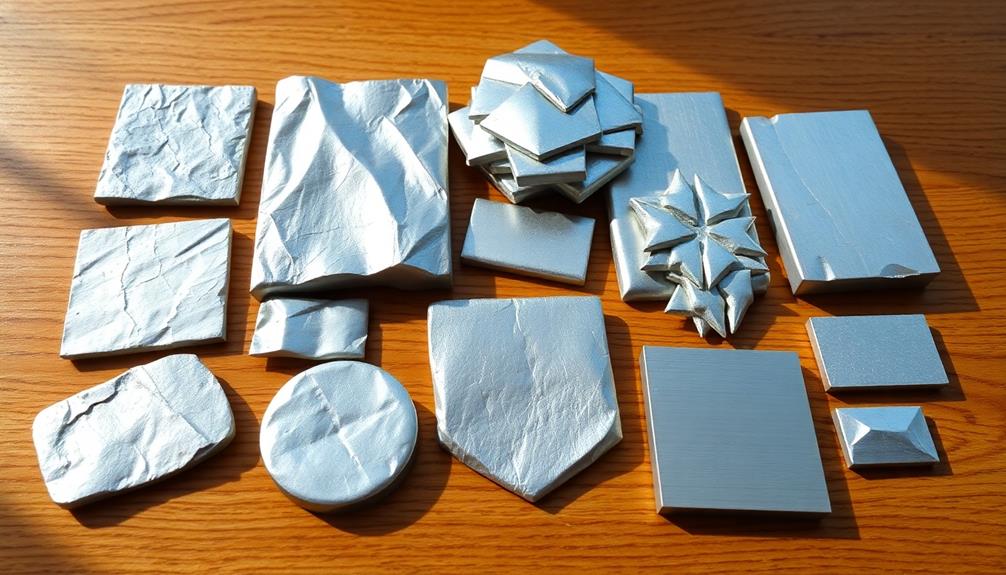
When selecting the right metal for your project, it's crucial to take into account the specific requirements and performance characteristics you need.
Start by evaluating the strength-to-weight ratio of each metal. Titanium offers unmatched strength but can be more expensive. If you're looking for a balance between weight and cost, aluminum alloys might be your best bet, especially for applications requiring good ductility.
Magnesium is the lightest option, ideal for projects prioritizing weight savings.
Consider factors like corrosion resistance, machinability, and ease of forming, as these can greatly impact your project's success.
Applications in Various Industries
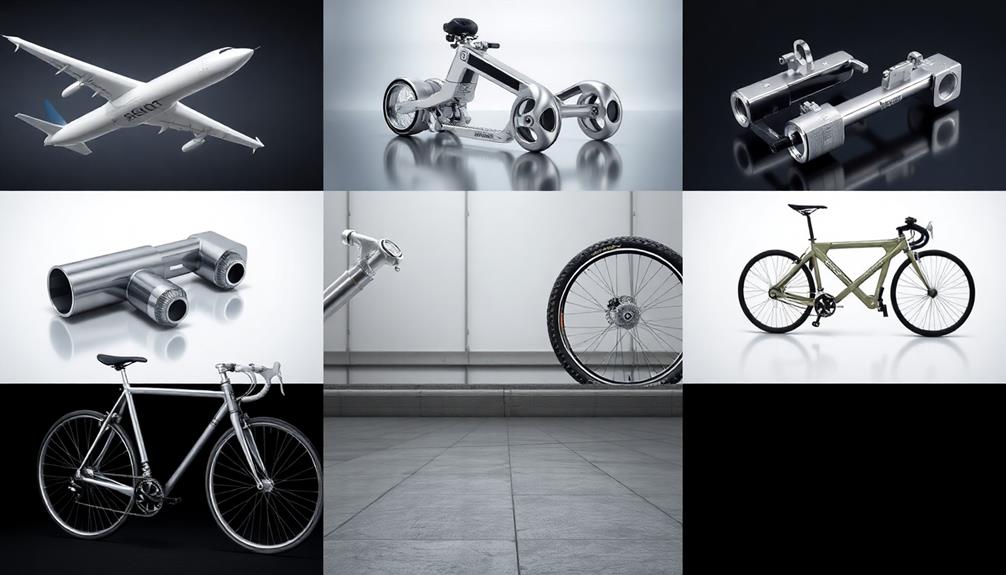
Lightweight metals like titanium, aluminum, and magnesium play essential roles across various industries, each bringing unique benefits tailored to specific applications.
In aerospace, titanium provides the strength needed for critical components while keeping weight to a minimum.
You'll find aluminum alloys dominating the automotive sector, where their balance of weight and strength enhances fuel efficiency and performance.
For electronics, magnesium's lightweight properties make it ideal for portable devices, ensuring functionality without unnecessary bulk.
Additionally, in the medical field, titanium's biocompatibility is significant for implants and surgical tools.
Frequently Asked Questions
How Do Environmental Factors Affect Lightweight Metal Performance?
Environmental factors like temperature, humidity, and exposure to corrosive elements can greatly affect lightweight metal performance. You need to take into account these conditions to guarantee durability and best functionality in your projects, adapting your material choices accordingly.
What Is the Cost Comparison Among Titanium, Aluminum, and Magnesium?
When comparing costs, titanium's typically higher price reflects its strength and durability. Aluminum offers a more affordable option, while magnesium falls between the two. Evaluating your budget and project needs will guide your choice.
Can Lightweight Metals Be Recycled Effectively?
Yes, lightweight metals can be recycled effectively. You'll find that aluminum, titanium, and magnesium alloys retain their properties through recycling, making them sustainable choices for your projects while minimizing waste and environmental impact.
What Are Common Fabrication Methods for These Metals?
When fabricating lightweight metals, you've got options like machining, welding, casting, and forming. Each method suits different needs, so you'll want to choose the one that aligns best with your project requirements.
How Do Lightweight Metals Respond to Temperature Changes?
Lightweight metals like titanium, aluminum, and magnesium expand and contract with temperature changes. You'll notice they can affect structural integrity, so it's essential to account for these variations during design and application.
Conclusion
In your quest for the ultimate lightweight metal, consider strength and weight, corrosion resistance and versatility, durability and efficiency. Whether you choose titanium for its unmatched resilience, aluminum for its adaptable nature, or magnesium for its incredible strength-to-weight ratio, each option offers unique benefits. By weighing these factors, you empower your project to reach its full potential. Make an informed choice, embrace the possibilities, and elevate your vision to new heights with the right lightweight metal.
